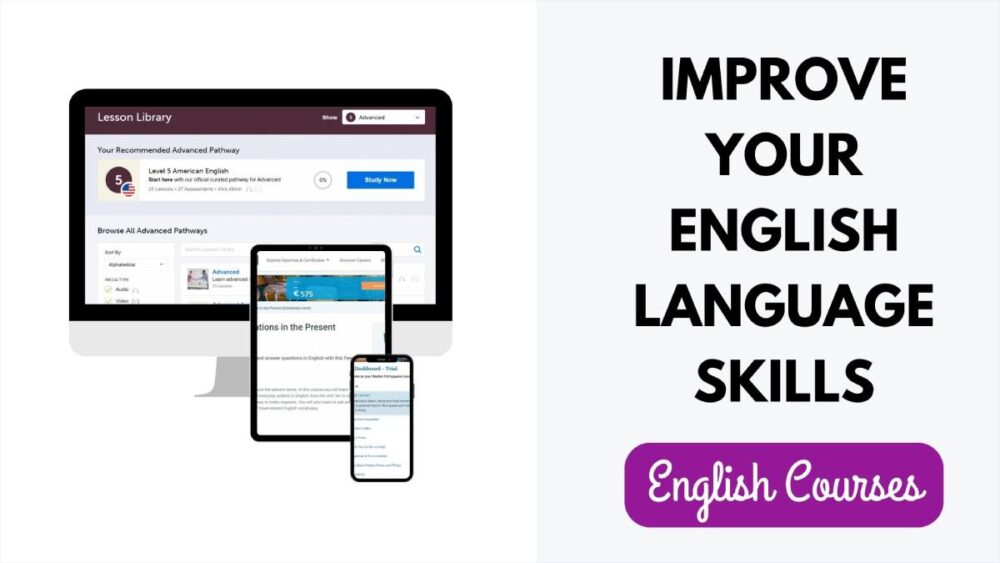Disclosure: This article may contain affiliate links, meaning that when you make a purchase, I earn a small commission. Affiliate links cost you nothing to use and help keep my content free. For more info, see the Disclosure Policy.
How is your day going? This is a question that most people ask others, and it’s usually just a polite way of saying “hello” or starting a conversation.
However, there are different ways to respond to this question, and each one can give someone a glimpse into your day. Let’s explore the meaning behind “How is your day going” and provide some responses you can use yourself!
Also, if you are interested, check out our related post: Best Ways To Respond To “Hope All is Well.”
Struggling to understand and communicate with native English speakers? Innovative Language provides short lessons for fast and effective learning. Get personalized guidance from a teacher and complete it at your own pace.
“How is Your Day Going” Meaning
The phrase “How is your day going” can be thought of as:
- “How is your day going so far?” This question usually refers to what has happened thus far in the person’s day.
- “How is your day going overall?” This question asks about the person’s day as a whole, including both good and bad moments.
- “How is your day going compared to yesterday/last week/etc.?” This question compares the current day to other days in order to get a sense of how things are going.
Who Asks “How is Your Day Going”
The phrase “How is your day going” can be asked by anyone, but it’s most commonly asked by friends, family members, or co-workers.
If you see or talk to someone on a daily basis, it is not uncommon for them to ask, “how is your day going?”
If you don’t see the person often, they might ask you, “how have you been doing?” in order to catch up on recent events.
How to Respond to “How Is Your Day Going”
Now that you know what “how is your day going” refers to, let’s explore some possible responses!
With your answer, you can always add “yours?” or “how about you?” to be polite and keep the conversation going.
If you know the person well, you might want to give a longer response, tell a story or share the finer details of your day.
“How is Your Day Going” Responses
- “Great, thanks for asking!”
This response shows that you are having a really good day and that you are in a good mood.
- “It’s been okay/fine.”
This response suggests that the person may have had some good and bad moments throughout the day. It gives no indication of any problems.
- “It’s been tough.”
This response indicates that the person has had a difficult or challenging day.
- “It’s been the same as always.”
This response indicates that there have not been any significant changes in the person’s day today.
- “It’s different than usual./It’s unusual.”
This response indicates that the person’s day is not what they’re used to.
- “It’s been really good!
This response shows happiness in regard to the person’s day.
- “It’s been terrible!”
This response shows either extreme unhappiness in regard to the person’s day.
- “It could be worse!”
This is a phrase that can be used to show that the person is grateful for what they have, even if their day has not been perfect.
- “I’ve had worse!”
This is a phrase that can be used to show that the person has had worse days than today.
- “Not bad, but the day is young!”
This phrase shows that the person is optimistic and has hope for the rest of their day.
- “It could be better!”
This phrase shows that the person is not content with how their day is going so far.
- “Not too bad. How about yours?”
This phrase is a noncommittal response that shows that the person does not want to talk about their day too much.
- “Well/ Fine, thanks for asking.”
This phrase is a polite way of saying that the person does not want to talk about their day.
- “Pretty good, thanks!”
This phrase shows that the person is content with how their day is going.
- “It’s been a long day.”
This phrase indicates that the person has had a long and challenging day.
- “I’m exhausted.”
This phrase indicates that the person is tired from their day.
- “It’s not over yet!”
This phrase shows that the person is still hopeful for the rest of their day.
- “I’m doing great/ fantastic/ wonderful/ amazing!”
This phrase indicates that the person has had a good day so far.
When responding to “How is your day going,” it is a good idea to be truthful and honest. However, you don’t need to share too much information if you don’t want to.
In general, it is best to keep your responses short and sweet! You might wish to expand your response if you know the other person well.
Alternative Ways to Say “How’s Your Day Going”
If you want to change up the phrase “How is your day going,” you can try some of these alternatives:
- How are you doing today?
- How has your day been so far?
- How’s everything going?
- How have you been?
- How are you feeling today?
- How’s everything with you?
- How’s it going?
“How’s it going” is similar to “how’s your day going.” It is another way of asking how you are. You can reply in the first person, “I.” For example, “I’m fine, thank you.”

You may also be interested in: 15 Best Online English Courses Free & Paid (2022)
Conclusion
“How is your day going?” is a question that can be answered in different ways, depending on the person’s mood and situation.
It is a polite way to ask how someone is doing, and it is best to be truthful and honest when responding.
You don’t need to share too much information if you don’t want to, but it is always a good idea to respond in some way!
Language Pack
6-Day English Challenge
Sign up for my free 6-day challenge + English vocabulary planner to improve your English skills. Practice for just 10 minutes per day and see the results! Sign up here.
One-on-One and Group Classes (Free Trial!)
Language lessons and targeted rapid learning at Lingoda to improve confidence. Classes are available 24/7 in English, Business English, German, French, and Spanish. Get a 7-day trial here.
Learn to READ AND WRITE
Learn how to write the letters of the alphabet and common English words with my printables available here. Improve early reading scores by 74% with the early learning program Homer.
Most Common Words in English
Did you know 3000 words in English make up about 95% of everyday conversation? Learn the 2000 most common words in English completely FREE when you sign up for English Class 101— no credit card required! Also, check out their monthly free gifts selection.
English Language Learning Videos
Study and learn English independently and at your own pace with the successful Building Your English Brain and English Vocabulary Launch: Upgrade your Speaking (intermediate).
Useful Links
- 40+ Different Ways to Say Goodnight
- Have a Great Weekend or Have a Nice Weekend?
- What Kind of Vs What Kinds of? Which is Correct?
- Kindergarden or Kindergarten? How to Spell Correctly!
Caitriona Maria is an education writer and founder of TPR Teaching, crafting inspiring pieces that promote the importance of developing new skills. For 7 years, she has been committed to providing students with the best learning opportunities possible, both domestically and abroad. Dedicated to unlocking students' potential, Caitriona has taught English in several countries and continues to explore new cultures through her travels.

